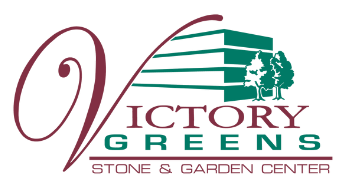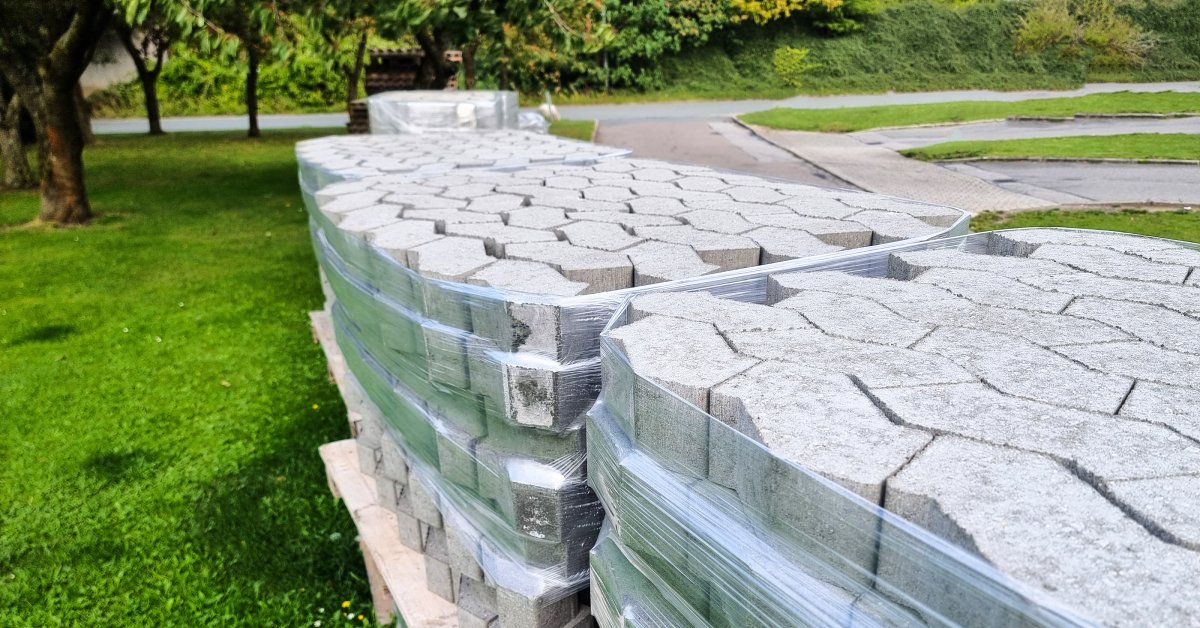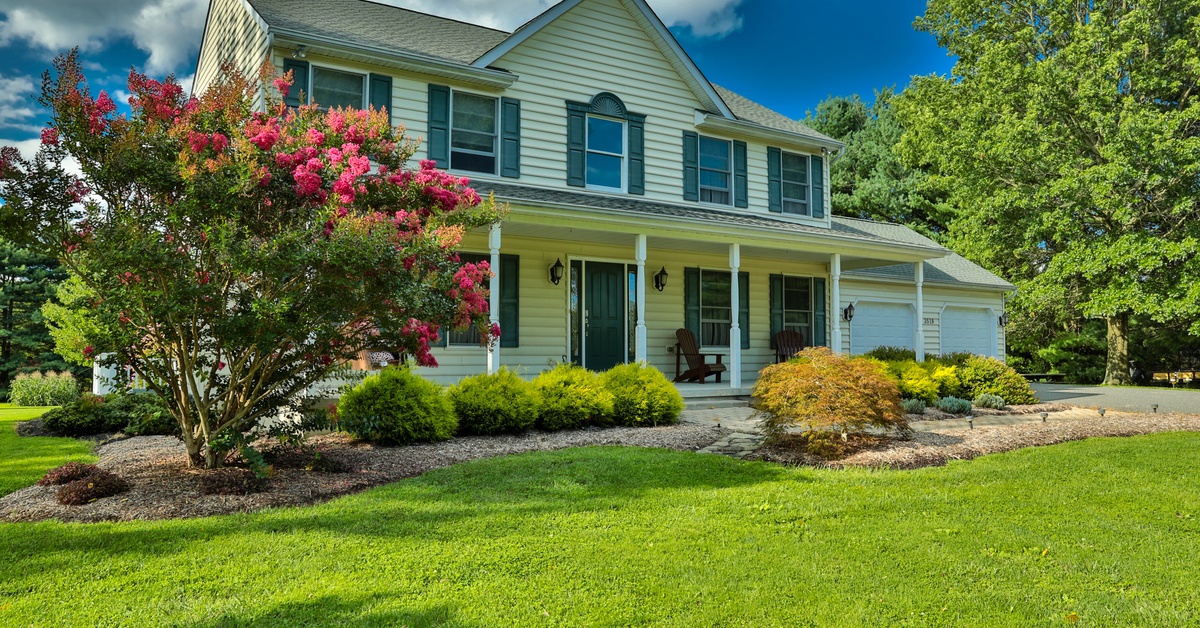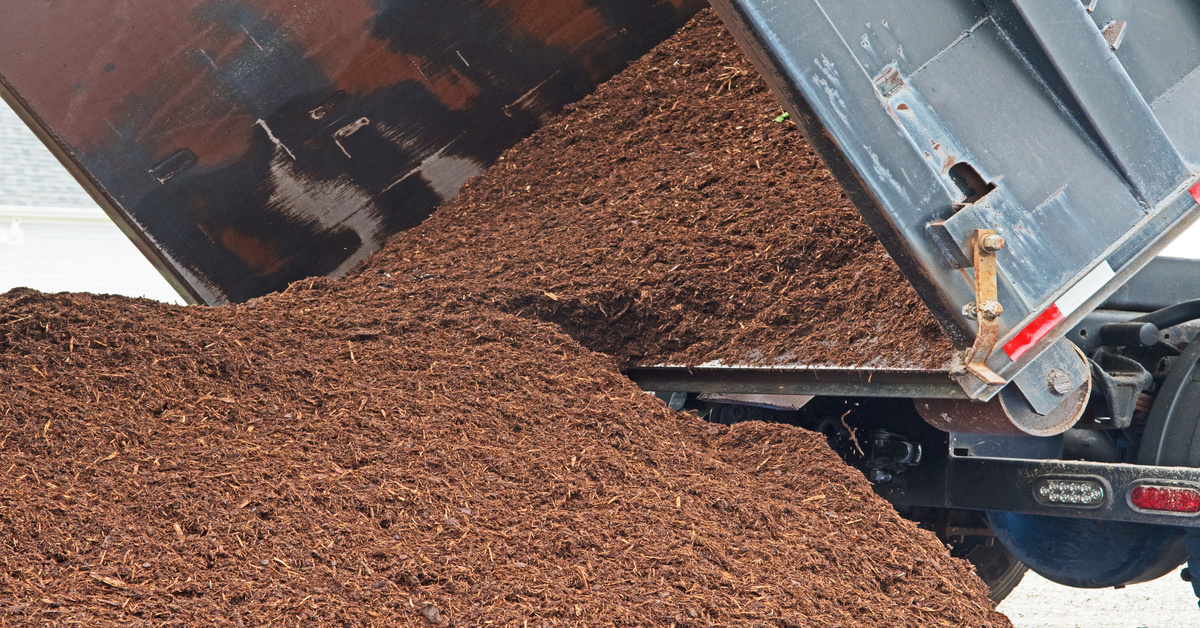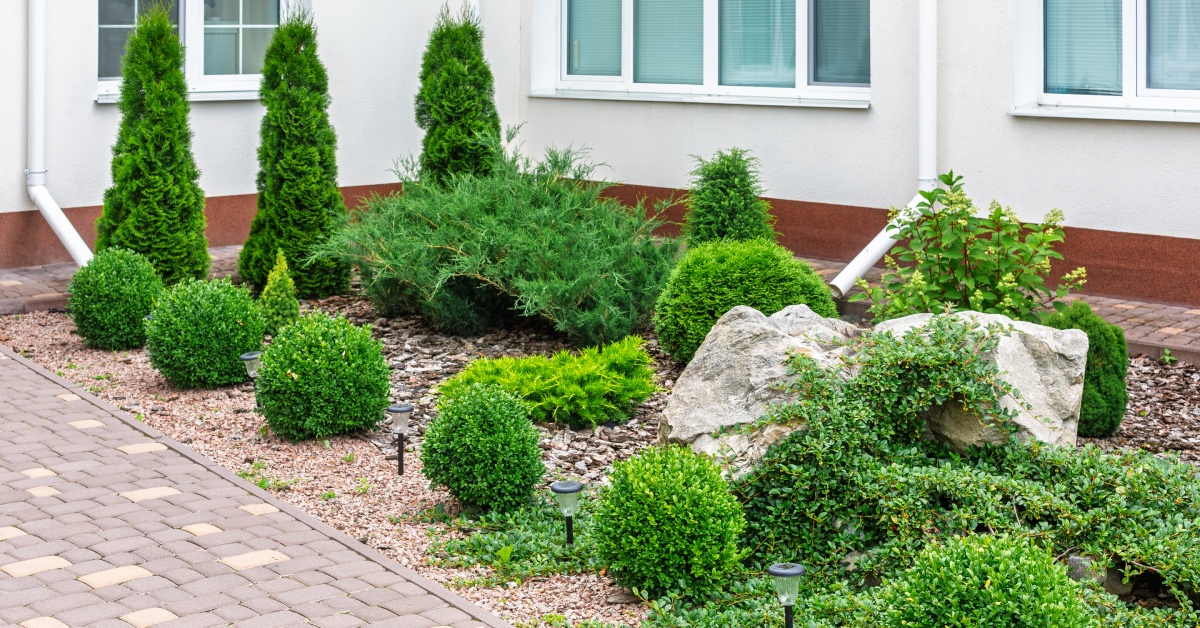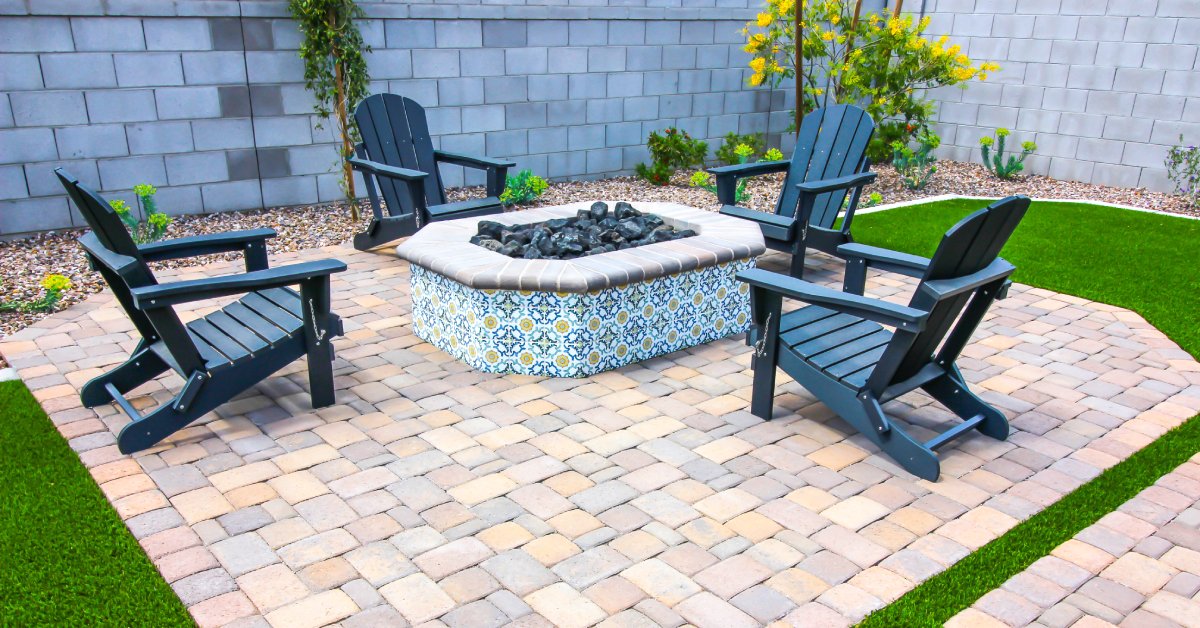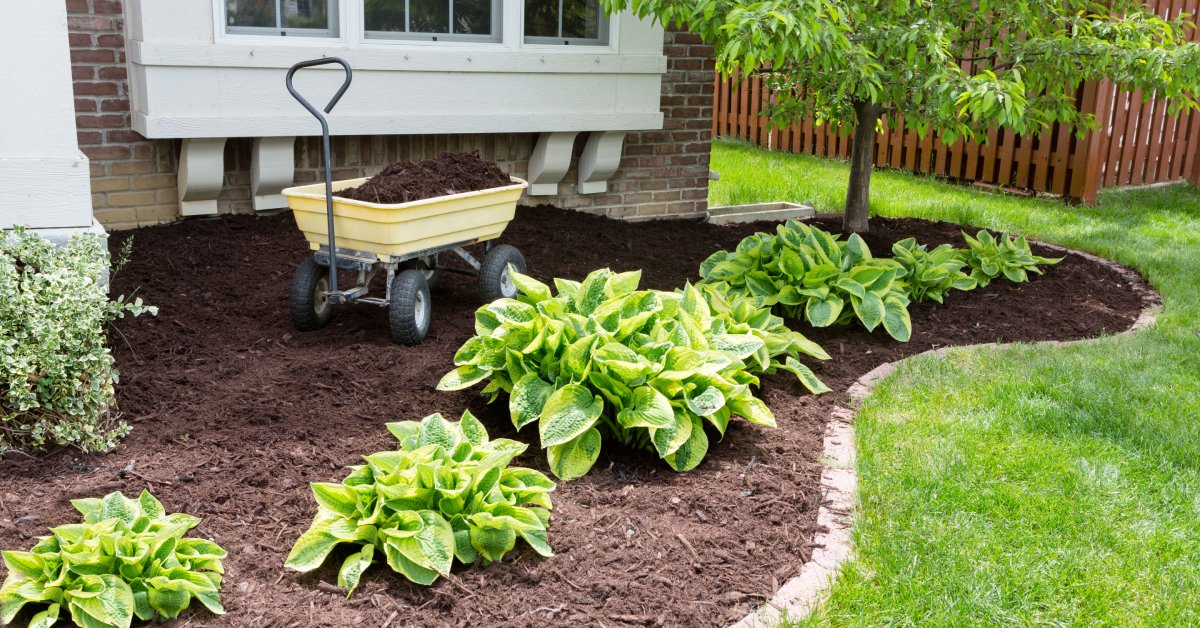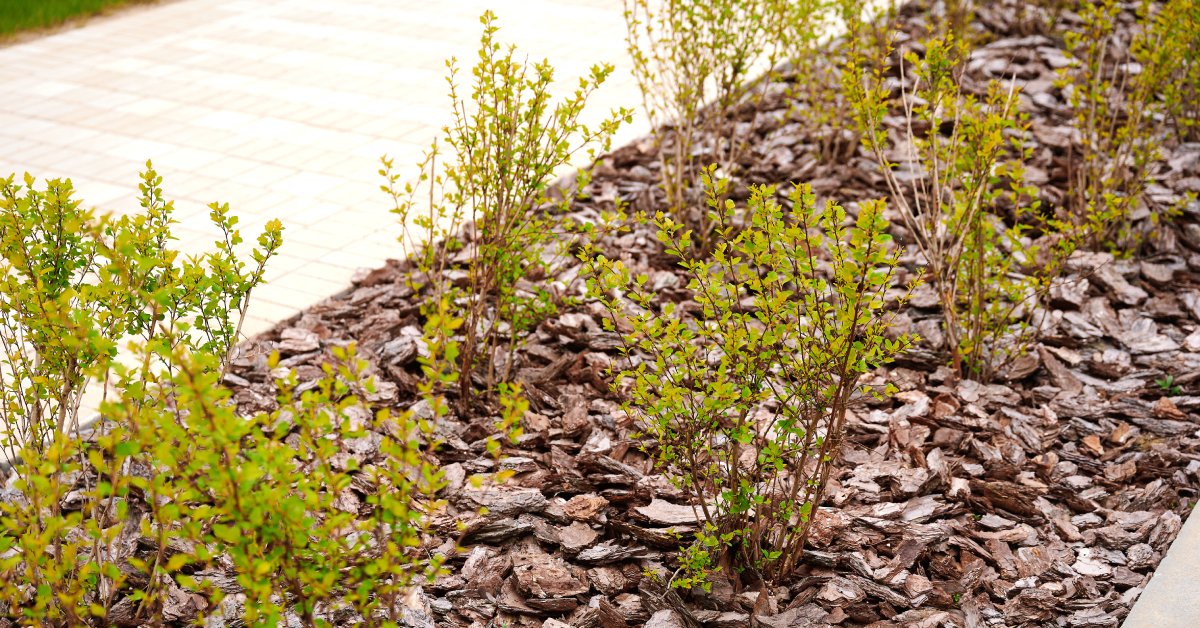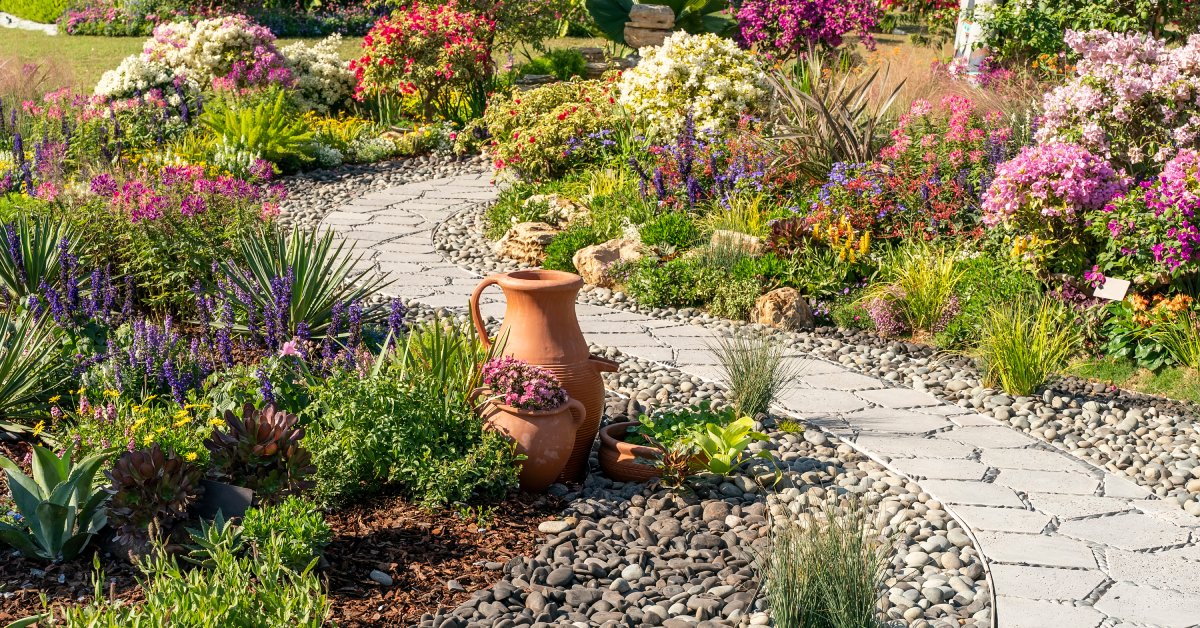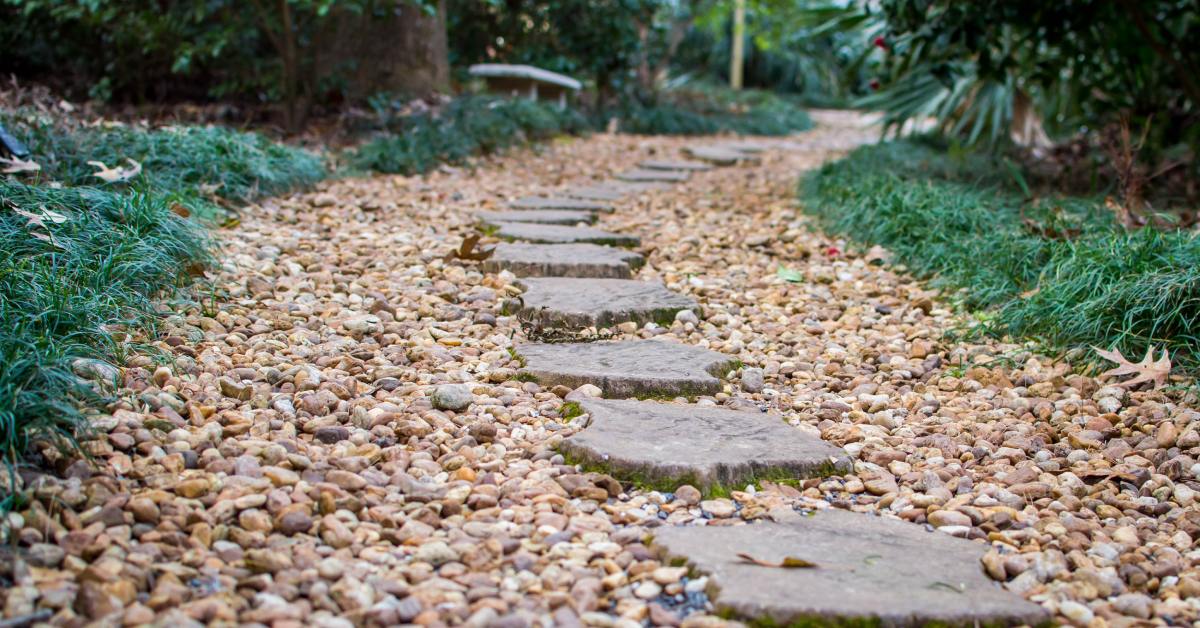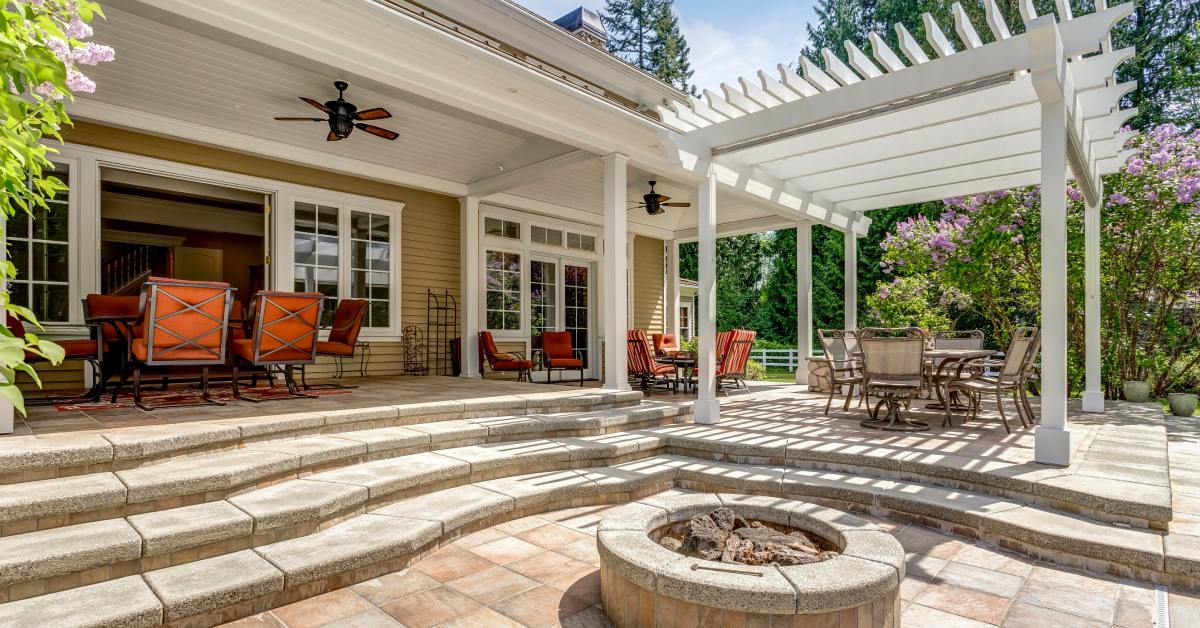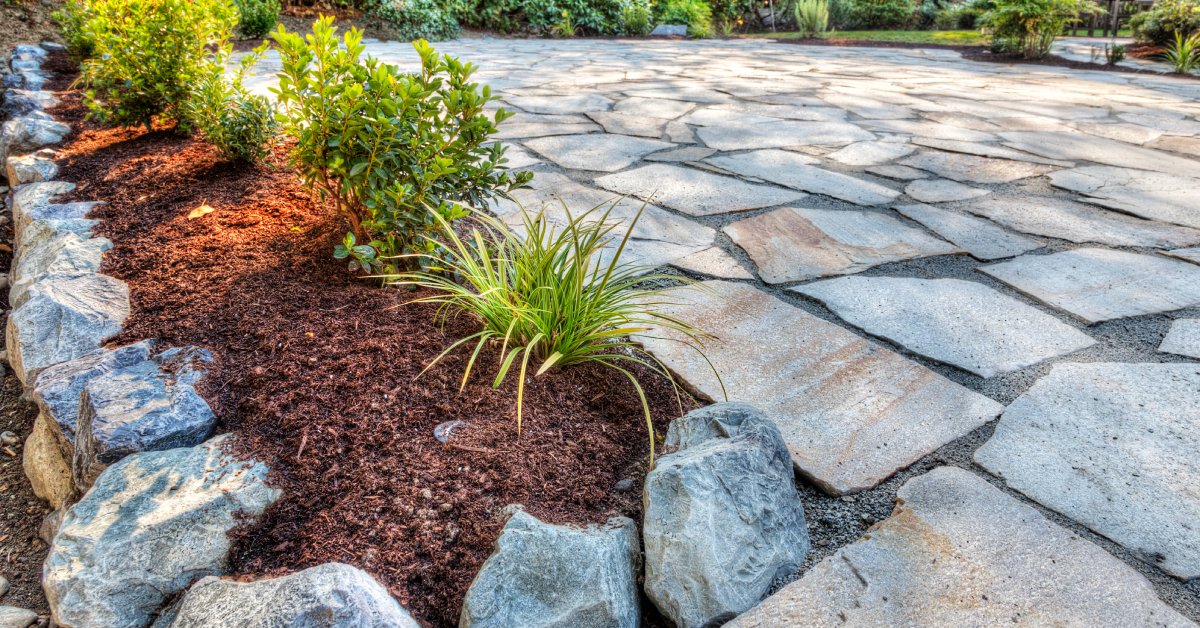Choosing between mulch and rock for your landscape beds can feel overwhelming. Both materials offer unique benefits, but the right choice depends on your specific needs, budget, and design preferences. We’re helping you make an informed decision that transforms your outdoor space into something beautiful and functional.
Learning which is best for your landscape beds will save you time, money, and frustration down the road. Let’s explore the mulch and rock and bring you closer to a decision.
How Do Mulch and Rock Compare for Visual Appeal?
Your landscape beds are the foundation for your home’s curb appeal. Mulch provides a natural, organic look that complements traditional and cottage-style homes beautifully. The rich browns and earth tones create warmth and blend seamlessly with plants and flowers.
In comparison, rock delivers a clean, modern aesthetic that works exceptionally well with contemporary architecture. River rock creates smooth, flowing lines, while crushed granite or decorative stone adds texture and sophistication. The color options range from neutral grays and tans to bold reds and blacks, allowing you to match your home’s exterior perfectly.
Which Material Better Supports Plant Health?
Plant health should be your top priority when selecting landscape bed materials. Mulch excels in this area by naturally decomposing and adding organic matter to your soil. This process improves soil structure, increases nutrient availability, and encourages beneficial microbial activity.
Organic mulch also regulates soil temperature more effectively than rock. During summer months, mulch keeps roots cool and moist. In winter, it provides insulation that protects plants from temperature fluctuations. This temperature regulation becomes particularly important for delicate perennials and newly planted shrubs.
How Effective Is Each Material for Weed Prevention?
Mulch and rock suppress weeds, but they work differently. A thick layer of organic mulch (three to four inches) blocks sunlight effectively and creates an environment that makes weed germination difficult. As the mulch breaks down, it forms a natural barrier that continues to suppress unwanted growth.
Rock provides excellent long-term weed control when installed properly over landscape fabric. Stone’s weight and density make it nearly impossible for weeds to push through. However, organic matter like leaves and debris can accumulate on top of rock over time, creating growing conditions for weeds if not you don’t clean them regularly.
For areas with persistent weed problems, rock often provides superior long-term control. For general landscape beds, high-quality mulch in Boise from Victory Greens offers effective weed suppression while providing additional plant benefits.
What Are the Cost Differences Between Mulch and Rock?
Initial installation costs vary significantly between these materials. Mulch typically costs less upfront, making it budget friendly for large areas. You can expect to spend considerably less per cubic yard for organic mulch compared to decorative stone.
However, you must factor in replacement costs. Mulch needs refreshing every one to two years as it decomposes, while rock remains in place for many years. Over a five year period, rock often becomes the more economical choice despite higher initial costs.
Which Material Requires Less Maintenance?
Maintenance requirements differ dramatically between these options. Mulch needs regular replenishment as it breaks down and may require occasional raking to maintain an even appearance. You’ll also need to pull weeds that occasionally sprout through the organic material.
Rock maintenance involves removing debris, leaves, and organic matter that accumulate over time. While you won’t need to replace the material, keeping rock beds looking pristine requires regular cleaning and occasional rearranging.
How Do Environmental Impacts Compare?
Environmental considerations play an increasingly important role in landscaping decisions. Organic mulch provides clear environmental benefits by improving soil health, supporting beneficial insects, and eventually decomposing into valuable organic matter.
Locally sourced mulch from local tree service companies or municipal programs reduce transportation costs and supports circular economy principles. This option often provides the most sustainable choice for environmentally conscious homeowners.
Rock mining and transportation create environmental impacts, but the material’s longevity offsets some of these concerns. Rock doesn’t require replacement after installation, reducing long-term environmental costs associated with repeated material production and delivery.
Which Works Better in Different Climates?
Climate significantly influences the effectiveness of each material. Hot, dry climates favor rock because it doesn’t decompose or blow away in strong winds. Desert and xeriscape gardens benefit from rock’s heat retention and excellent drainage.
Humid climates with regular rainfall work better with organic mulch. The moisture helps decomposition, which continuously improves soil quality. Areas with harsh winters also benefit from mulch’s insulating properties that protect plant roots from freezing temperatures.
What Installation Differences Should You Know?
Installation processes vary considerably between these materials. Mulch installation involves clearing the area, adding the organic material, and spreading it evenly to the proper depth. The process requires minimal tools and is relatively quick to complete.
Rock installation demands a little more preparation, including proper grading, landscape fabric installation, and careful placement of stones. The physical demands are greater due to the material’s weight, and achieving an attractive appearance requires more hands-on skill and time.
How Do Seasonal Considerations Affect Your Choice?
Seasonal performance varies between these materials in important ways. Mulch provides consistent benefits throughout the year but may need refreshing after harsh weather conditions. Spring installation allows you to start the growing season with fresh, attractive beds.
Rock performs consistently across seasons but can become uncomfortably hot during summer months in sunny locations. Snow and ice removal becomes easier with rock surfaces, making it practical for areas that receive regular winter precipitation.
What Specific Plant Types Work Best With Each Material?
Different plants thrive with different mulching materials. Acid-loving plants like azaleas and blueberries benefit from organic mulches that lower soil pH as they decompose. Vegetable gardens and annual flower beds also respond well to the soil improvement that organic mulch provides.
Mediterranean plants, succulents, and drought-tolerant perennials often prefer rock mulch. These plants evolved in rocky, well-draining soils and can struggle in the moisture-retentive environment that organic mulch creates.
Make the Right Choice for Your Landscape
Choosing between mulch and rock ultimately depends on your priorities, budget, and landscape bed goals. Choose organic mulch if you want to improve soil health, support plant growth, and create a natural appearance on a budget. Select rock if you prefer low maintenance, modern aesthetics, and long-term value.
Many successful landscapes combine each material strategically. Use organic mulch around plants that benefit from soil improvement and rock in areas where drainage and permanence matter most. Get in touch with Victory Greens for your bulk mulch needs in the Greater Boise area. We can’t wait to bring your landscape vision to life!
